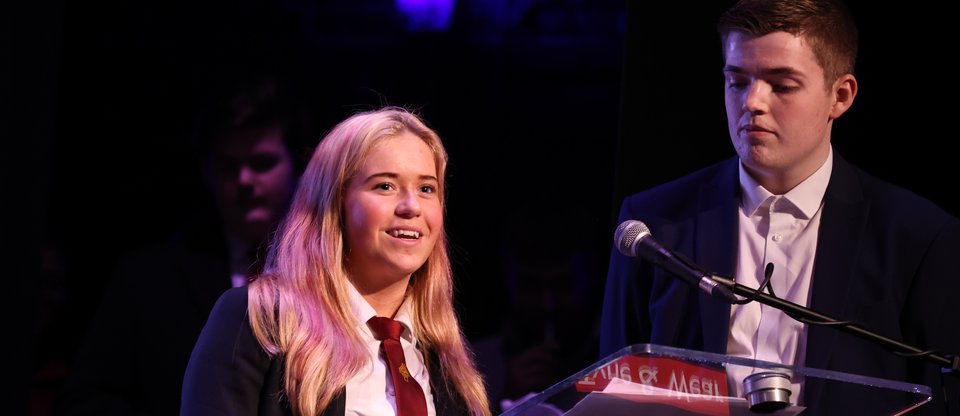School and College-Based Counselling
We know everyday people have the ability to shape the world around them.
That's why pupils, teachers, unions and health organisations from chapters across Citizens UK are coming together to drive nationwide change on mental health services in schools and colleges - an issue that communities care about.
Young people are suffering without mental health support
Our new report with Public First and BACP reveals that a staggering one in five 8-16 year olds struggled with a mental health condition in 2023, and that many are falling through the cracks and missing school without proper access to support.
The benefits of introducing a trained counsellor in every school and college throughout England are clear. Young people with support have a better chance of gaining good employment with higher wages, and leading a happier and healthier life. Plus, our report finds that giving children and young people access to counselling will provide a lifetime fiscal benefit to the government of about £2,640 against a cost of provision of £350. For primary school-age children, fiscal benefits are ten times greater than the cost of provision.
Read our full report now.
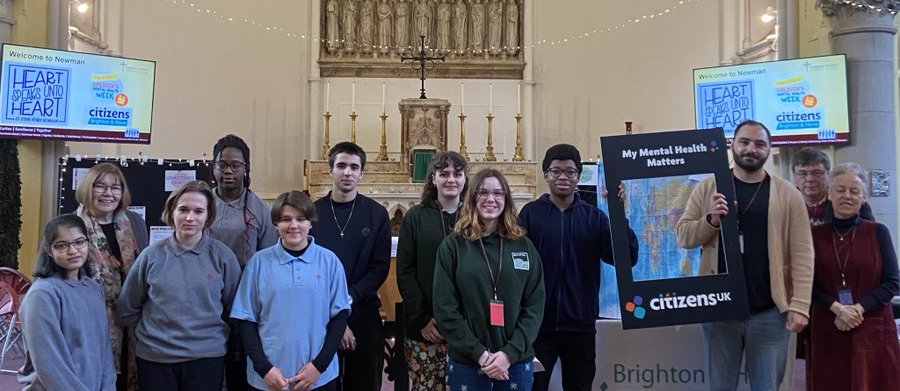
Citizens UK is calling on the UK Government to make it a legal requirement to provide counselling in primary schools, secondary schools, and Further Education colleges in England.
This measure would change countless lives and give young people hope for their futures. By providing effective support earlier on at an estimated cost of £250 million per year, school- and college-based counselling could save hundreds of millions otherwise lost to harder to access services and other factors that affect the UK economy, such as lost productivity at work and reduced quality of life.
Read our full briefing using the button below.
Why does it matter?
Since 2018, Citizens UK alliances have listened to tens of thousands of people about the mental health of children and young people who highlighted how existing services often failed to meet the health needs of children and young people.
Unlike in Northern Ireland, Scotland and Wales, there is no statutory requirement for, or provision of, counselling in schools and colleges in England. This leaves some children and young people in England without access to a counsellor.
Children are being rejected from services
In 2022, a survey of GPs reported that half said six in ten of their referrals to Child and Adolescent Mental Health Services were rejected on the grounds that their symptoms were not severe enough, even though only the most at-risk children and young people are referred.
Power-holders already know how important mental health support in schools is
In 2019, the UK Government began piloting Mental Health Support Teams in England. Mental Health Support Teams work across schools, supporting them to develop low-intensity interventions for children and young people experiencing mild to moderate mental health difficulties. By 2024, it is anticipated these teams will reach fifty percent of all schools and colleges.
In November 2021 a Back-bench debate on School-based counselling took place. Nick Brown MP recognised Tyne & Wear Citizens. Paul Bristow recognised Peterborough Citizens. The Minister of State and MP for Colchester, Will Quince responded. Read the Debate Part 1 | Debate Part 2, and watch the recording which started at 5pm.
Will school- and college-based counselling work?
School and College-based counselling is a proven intervention for children and young people experiencing psychological distress. Counselling provided in schools and colleges has also been shown to minimise pressure on Child and Adolescent Mental Health Services.
Citizens UK believes school- and college-based counselling can fill the ‘missing middle’ between Mental Health Support Teams and Child and Adolescent Mental Health Services. As well as serve those children and young people who do not have access to these earlier help teams due to the scale of the roll-out.
We are calling on the UK Government to secure the statutory provision of counselling in primary schools, secondary schools and Further Education colleges in England that is:
Cooperative
Beginning with a commitment to early years mental health education, the provision of counselling should be situated strategically on a continuum of intervention and support. The provision of counselling can take different forms according to the child or young person’s preference (face-to-face sessions at school or external venues, telephone counselling and wellbeing apps).
Collaborative
Counsellors should liaise internally with their school/college (Mental Health Lead, Family Liaison Officer, senior management team) and with external agencies (Social Services, Police, Local Education Authority), so that provision is sensitive to the child or young person’s family dynamics, the impact of social determinants and the demography of the school/college catchment area.
Consistent
Counselling should be provided by those trained on a nationally-recognised course, registered with a professional body for reasons of ethical oversight, training and supervision, and experienced in working with school- and college-age students.
Key facts and figures
Citizens UK is grateful to Joanna Holmes, British Association for Counselling and Psychotherapy and Scott Corfe, Public First for their assistance in calculating these costs.
To quantify the number of pupils who would benefit from universal counselling, our starting point has been to draw on Office for National Statistics population estimates and Department for Education estimates of the size of the population in state education in 2024. We have combined this with NHS Digital estimates of the proportion of children and young people, by age group, with a probable mental health condition, to estimate the absolute number of individuals with a probable condition.
We believe a reasonable gauge of the size of this “missing middle” is the proportion of CYPMHS cases that end up being closed after no or just one contact - 39%. We take this to indicate that 39% of the probable mental health condition cohort could be suited to alternative forms of provision such as counselling - amounting to about 730,000 individuals in 2024.
To estimate the cost of providing counselling provision to these 730,000 individuals we make the following assumptions:
- Pupils normally attend an average of six sessions of counselling.
- Counsellors undertake 18 sessions per week, for 46 weeks per year. We assume that counselling takes place throughout the year, including outside of term time.
- Counsellor average salary stands at £35,745, which is National Joint Council Spinal Column Point 27. This is the relevant pay band for a BACP-registered Counsellor.
- Employer pension contributions stand at 18% of salary (in line with IFS estimate of public sector average)
- Training, supervision and other non-salary costs per counsellor amount to 10% of salary.
Based on these assumptions and calculating employer NICS for the average salary used above, we arrive at:
- 4.4 million counselling sessions required across England
- Circa 5,300 counsellors are required to deliver this.
- Cost of provision of circa £250 million in aggregate - £350 per individual receiving counselling.
Key Leaders for this Campaign
Citizens UK is the UK’s biggest, most diverse, and most effective people-powered alliance. We develop community leaders who come together to win change. The key chapters in this campaign are:
Birmingham Citizens
Bradford Citizens
Brighton & Hove Citizens
Leicester and Leicestershire Citizens
North London Citizens
Nottingham Citizens
Somerset Citizens
Tyne & Wear Citizens
Emerging Citizens alliances in the South West of England
How to get involved
For more information on the campaign please email Citizens UK Headteacher-in-Residence and Assistant Director Sebastien Chapleau, or point of contact for the national School- and College-based Counselling Action Team, Reverend Simon Mason.
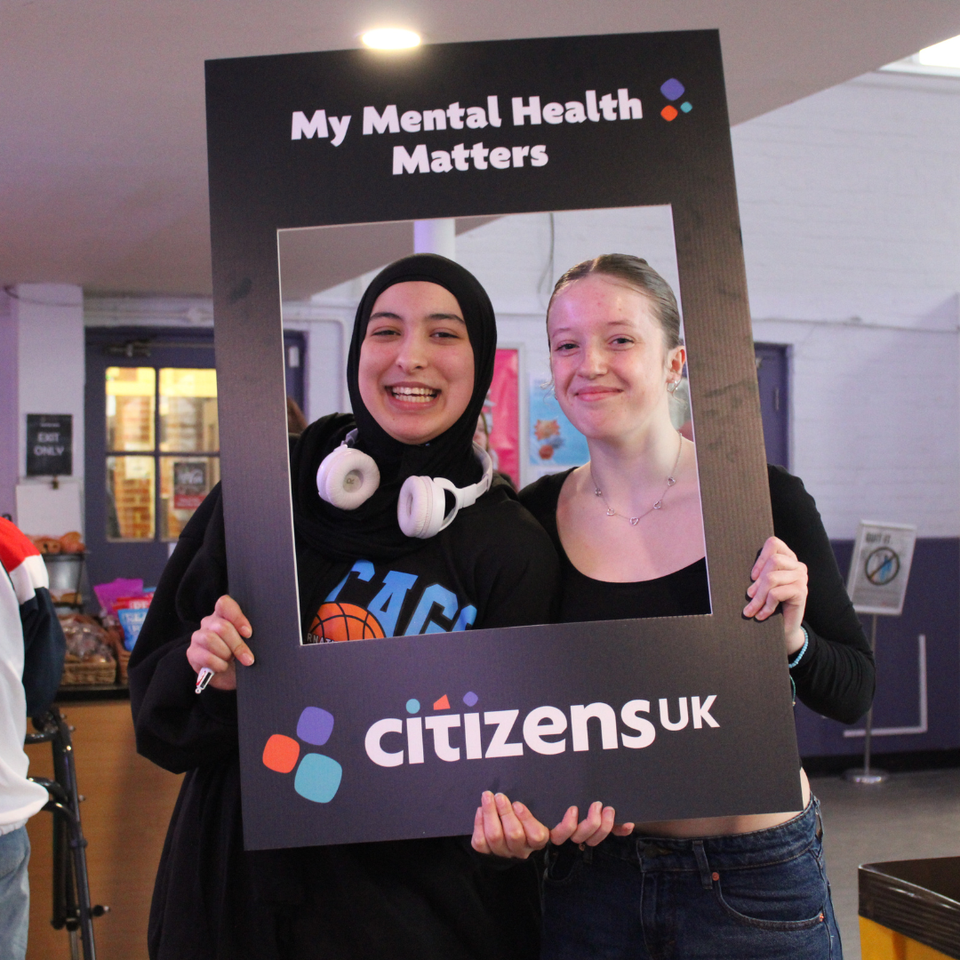
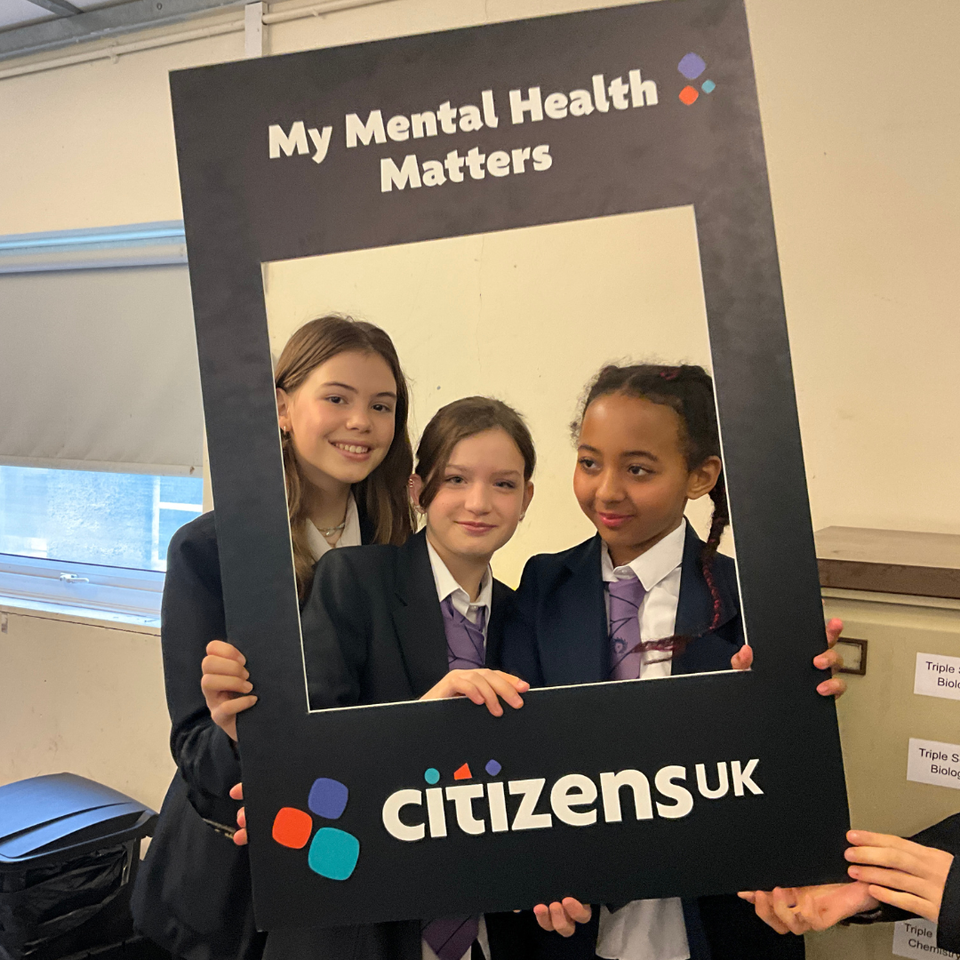
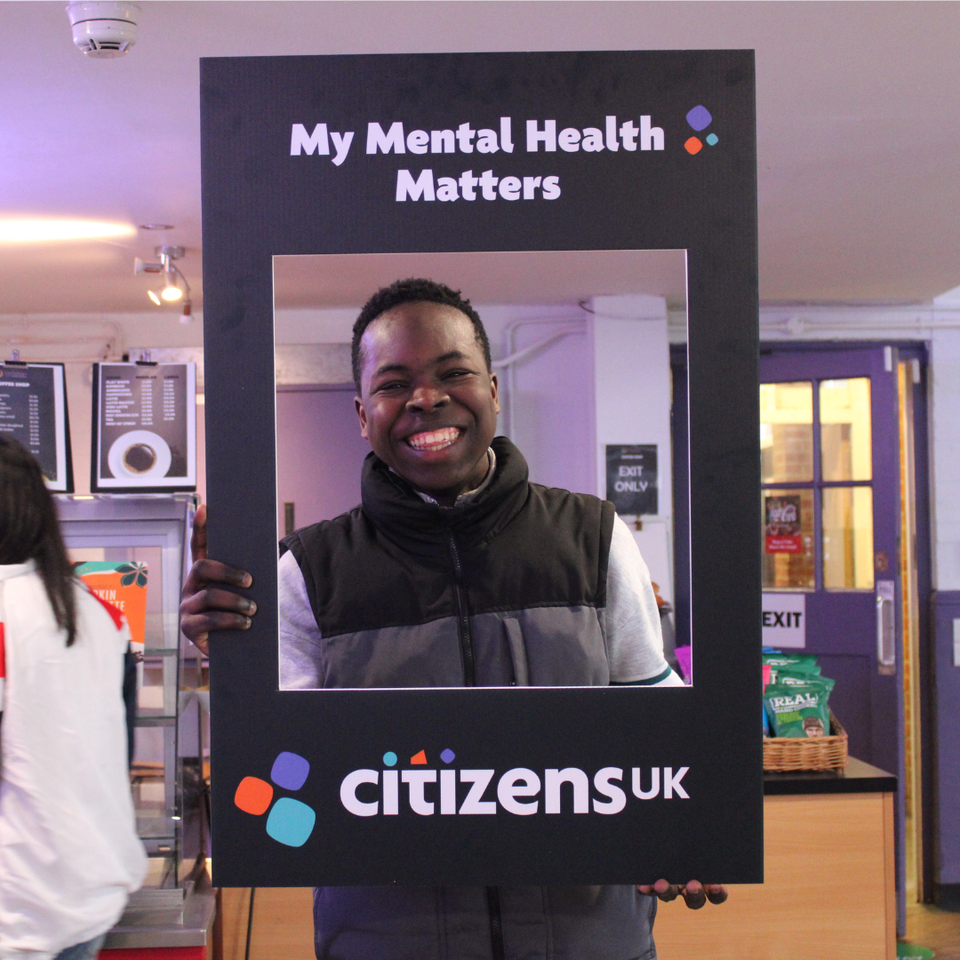
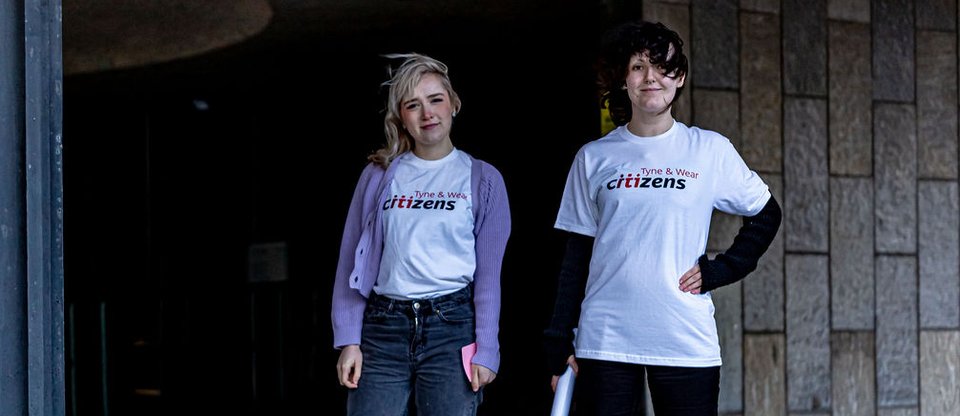
The school and college-based counselling campaign started in 2017, when community leaders from Tyne and Wear Citizens heard countless stories of mental health struggles from people in organisations across the city. Together, they won change on numerous issues including securing a programme to roll out a qualified counsellor in every school across the North East. Read about how everyday people drove local and nationwide change by creating a 'Citizens Commission' - a unique process for overcoming injustice and putting the power back in people's hands.
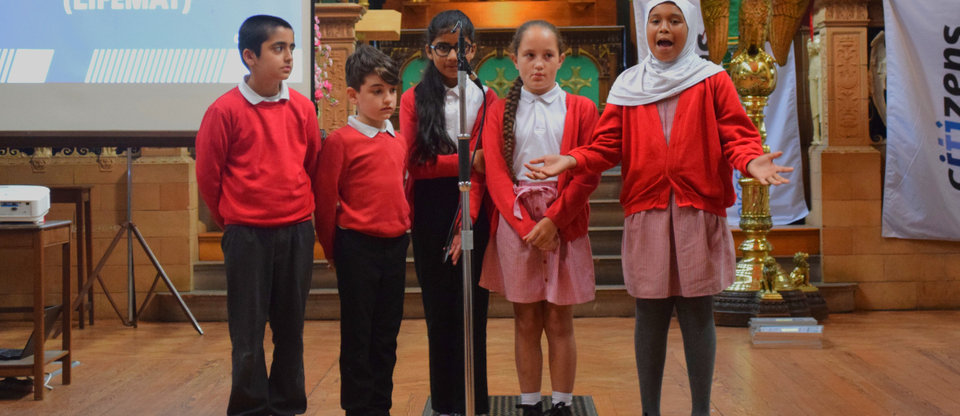
In response to the worsening mental health situation for children and young people in England, Citizens UK has allied with the NASUWT, BACP, NAHT, NCPS and Parentkind during Children's Mental Health Week 2024, to campaign for statutory School-Based Counselling.
Resources for schools and colleges
Our free e-books are packed full of stories of young people and educational institutions winning change in communities across the UK. From big wins on housing and transport, to supporting migrant families and fighting racial discrimination, they are a must-read for anyone wanting to shift the balance for the better.






